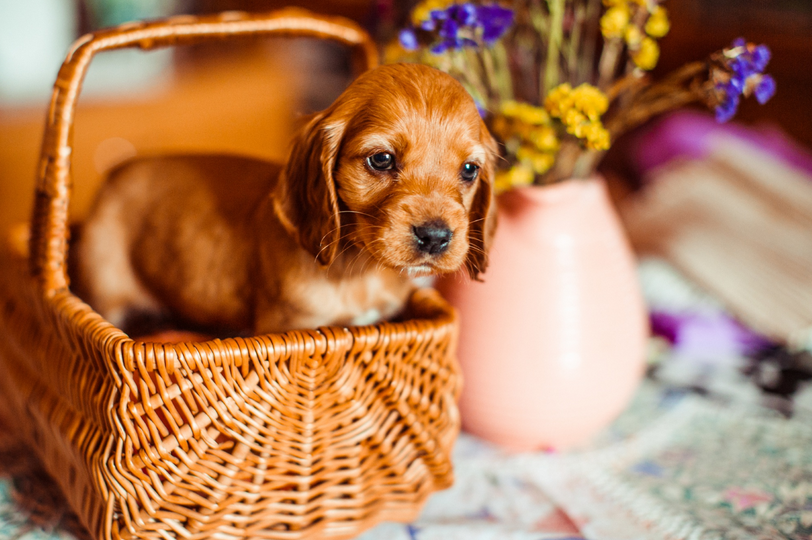
Ever considered what it’s really like to come home to a dog small enough to fit in the palm of your hand? Teacup puppies are irresistibly cute, but owning one is a whole lot more than a cute photo opportunity.
These small friends need a special kind of care, attention, and preparation. From gentle health issues to peculiar diets and safe habitats, their smallness appears to equal big responsibilities.
Responsible breeders understand these needs and go out of their way to ensure each puppy is vet-checked, vaccinated, and socialized before rehoming. Some even offer personalized delivery options to bring your pup safely right to your doorstep.
But first, you must know what you are getting yourself into before you fall in love with those little paws and twinkling eyes. Raising a teacup puppy is not hugs and buddies; it’s about assuming the responsibility of a lifetime of fastidious care and protection.
Let’s find out what you should know before making that decision.
1. What Exactly Is a Teacup Puppy?
Teacup puppy is not a breed. Instead, it is simply the term used to describe miniature dogs that are bred down from toy breeds such as Chihuahua, Pomeranians, Maltese, or Yorkies. The dogs are bred even smaller than their already minuscule counterparts and weigh less than four pounds when full-grown.
Though their tiny stature is irresistibly adorable, that extreme miniaturization has a price. Teacup puppies are more susceptible to illness because they are smaller and have been bred.
If you’re interested in one, you can try searching for “teacup puppies for sale” in your preferred search engine to find out the availability in your area, but also make sure to respect responsible, humane breeders who care about the health and welfare of their animals.
2. The Ethical Dilemma Behind Tiny Breeding
The vast majority of teacup puppies are the product of intentional breeding for small dogs. To their detriment, this objective is, in some cases, at the expense of animal health. Irresponsible breeders will sometimes sacrifice the long-term health of the canine in pursuit of the smallest size by breeding from runts or sick animals to receive even smaller litters.
This is immoral and most often leads to the puppies having weaker immune systems, lower bone density, or congenital disabilities. Careful research on breeders should be done before one buys a teacup breed puppy. Ask for health clearances, veterinary examination histories, and information on the parents of the puppy. The ideal breeder must be willing to cooperate and care about the welfare of animals rather than make a profit.
3. The Hidden Health Risks of Tiny Pups
Due to their fragile structure, teacup puppies have a range of ailments. The most common are hypoglycemia (fatal low blood sugar), heart malformations, respiratory issues, and fractures.
Even minor falls or bumps can be dangerous. Regular vet visits, specialized nutrition, and cautious handling become part of daily life with a teacup dog. In short, these dogs require attentive care every day and a willingness to act quickly at the first sign of trouble.
4. Daily Care Demands More Than You Think
It’s easy to assume that a smaller dog will be easier to handle and care for. Teacup puppies tend to be more high maintenance than the bigger ones. They possess high metabolisms and therefore, need extremely small, regular meals throughout the day in an attempt to circumvent blood sugar drops.
Their tiny bladders require them to go to the bathroom more frequently. You’re going to have to puppy-proof your house diligently. Just the simple act of bouncing off the couch or getting stepped on by accident will cause them severe harm. This is not a dog that you can leave to lounge around for hours at a time or send out to just anybody. Their care is ongoing, hands-on, and highly specialized.
5. Emotional Needs
Teacup puppies are too dependent on people and cannot be left alone for extended periods. They suffer from separation anxiety and do best in the house where an individual is home for most of the day. Their emotional needs are just as real and intense as their physical needs.
Socialization is paramount. Though they’re too small for a bout of rough play, teacup puppies must be socialized to prevent them from becoming clingy or afraid. Training early must be initiated and reaffirmed.
6. Teacup Puppies Aren’t Just a Trend—They’re a Lifetime Commitment
Although teacup puppies can appear in designer purses or Instagram clips, they are not accessories. They are animals that can survive for 12–15 years if well taken care of. That’s more than a decade of responsibility, vet appointments, grooming, dietary routine, playtime, emotional support, and health screenings.
Their compact size doesn’t make them any less demanding to care for than a typical dog; quite the contrary, in many ways. If you find yourself thinking seriously about obtaining one, ask yourself this question: Are you prepared for an always-there companion that requires patient, educated, gentle attention?
The bottom line
Teacup puppies are irresistibly cute, but owning one requires a deep commitment, responsibility, and constant education. From navigating serious health issues to providing emotional well-being, teacup dog ownership is more than snuggles and photo shoots; it’s rising to the challenge of their special needs daily.
Take time before you take one home to think about your lifestyle, resources, and preparedness for this adventure. Make wise decisions. Find reputable breeders, ask the right questions, and get your house and heart ready for an experience as challenging as it is fulfilling.
While they may be small enough to hold in the palm of your hand, teacup puppies occupy a huge place in your life. And they should have nothing less than a thoughtful, lifelong commitment.




